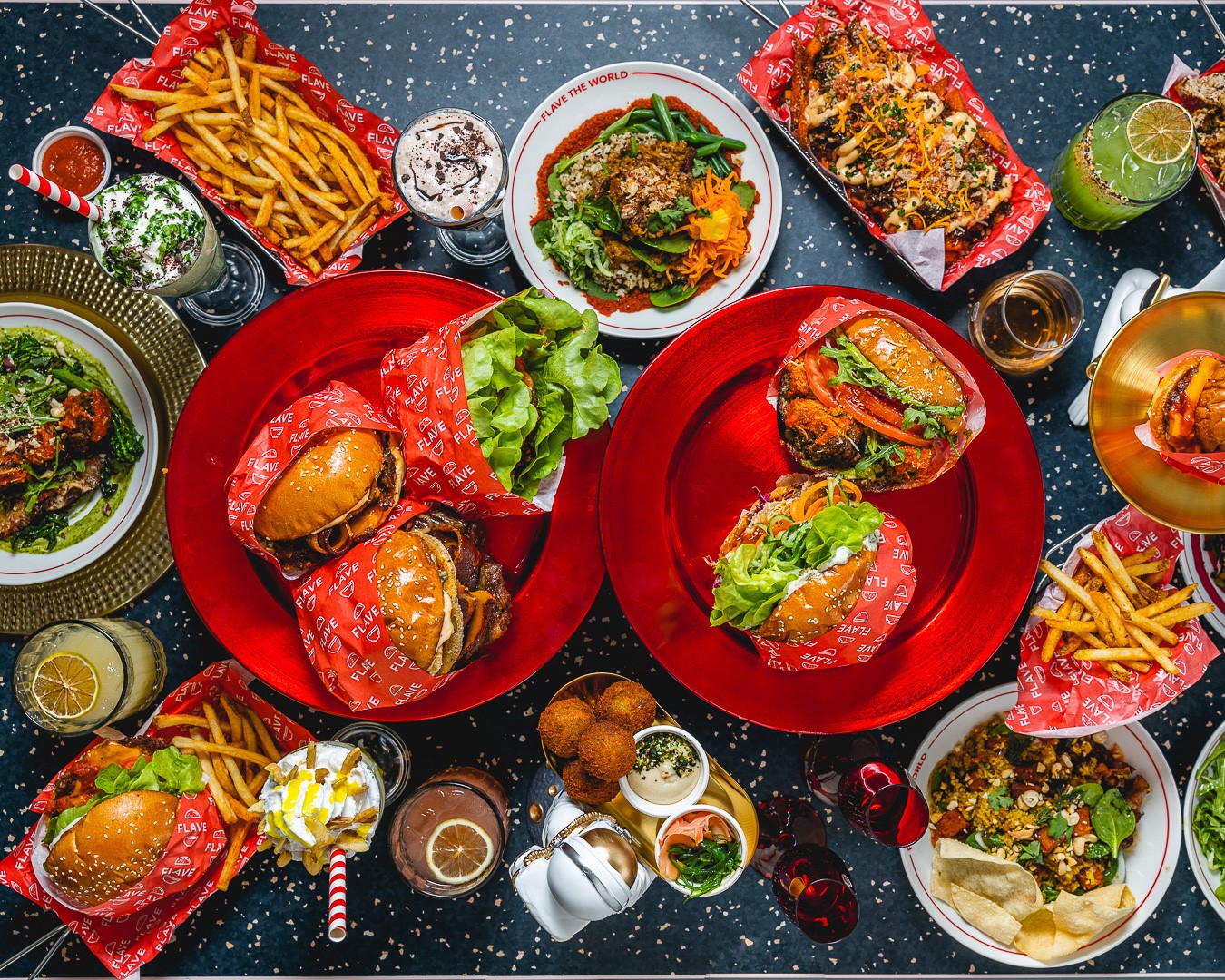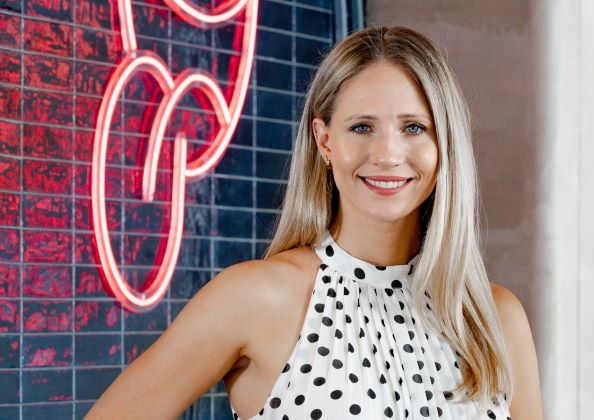The earth’s population is expected to grow to 10 billion by 2050 – and there simply is not enough land mass to support current global eating habits. So in 2020, the United Nations Intergovernmental Panel on Climate Change made a plea for people to adopt a more plant-focused diet to help mitigate the effects of the climate crisis on our planet.
This is because animal agriculture is responsible for more greenhouse gas emissions than all transportation, and is the leading cause of deforestation, habitat destruction, wildlife extinction and contributes to ocean degradation. Beef production, in particular, requires over 10 times more water than most vegetables do. Every year, 10 billion animals are raised for meat in factory farm conditions.
Flave is a local business that exists to introduce people to sustainable food options worthy of their taste buds. We’re here to encourage incremental change, because even small changes to our food habits can make a meaningful difference to not just our health, but also the health of our beloved planet.
 And plant-based eating is not just better for the planet! An increasing body of research suggests that those who eat primarily plant-based foods tend to have more energy, enjoy a better quality of sleep, have a lower body mass index (BMI), and experience lower rates of obesity, diabetes and heart disease. Some of this is because traditional plant-based diets are high in fibre, complex carbohydrates and water content from fruits and vegetables, which can help people stay fuller for longer. A series of studies conducted and documented by American Heart Associated found that vegetarians and vegans had better cardiovascular health and concluded that adopting a more plant-centric diet significantly lowered the risk of dying from heart disease by up to 25%, compared to non-vegetarians.
And plant-based eating is not just better for the planet! An increasing body of research suggests that those who eat primarily plant-based foods tend to have more energy, enjoy a better quality of sleep, have a lower body mass index (BMI), and experience lower rates of obesity, diabetes and heart disease. Some of this is because traditional plant-based diets are high in fibre, complex carbohydrates and water content from fruits and vegetables, which can help people stay fuller for longer. A series of studies conducted and documented by American Heart Associated found that vegetarians and vegans had better cardiovascular health and concluded that adopting a more plant-centric diet significantly lowered the risk of dying from heart disease by up to 25%, compared to non-vegetarians.
But is there enough protein in a plant-based diet? Research shows that plant-based diets can offer all the necessary proteins, fats, carbohydrates, vitamins and minerals for optimum health, and are often higher in fibre and phytonutrients than our traditional, mainstay western diet. Simon Hill, in his book, The Proof is in the Plants, cites a US Academy of Nutrition and Dietetics 2016 position paper which emphasises that “vegetarian, including vegan, diets typically meet or exceed recommended protein intakes, when caloric intakes are adequate”. A finding that is supported by multiple other studies. For example, 1 cup of soybeans boasts 31 grams of protein, more than a 100 gram steak, and a solitary cup of black beans in fact packs 15g of protein, more than a chicken drumstick!
Furthermore, the World Health Organisation has classified processed meats including ham, bacon, salami to name but a few, as Group 1 carcinogens (meaning they are known to cause Cancer). In addition, the Australian Cancer Council reports that eating more than 70 grams of red meat a week increases your risk of bowel cancer.
But it doesn’t have to be all or nothing. Recent research has shown that, 80% of Aussie consumers want to reduce their meat intake, with “Flexitarianism” one of the fastest-growing food trends, allowing consumers to live a healthier & more sustainable lifestyle without cutting meat out completely.
Our business has long partnered with the Darwin Challenge, which is an app that helps track and celebrate meat-free days or meals. Started by the grandson of Charles Darwin, you can log your own meat-free days and meals here, and learn the powerful planetary benefits and impacts of your choices.
While you’re considering the planetary impact of your dining habits, don’t forget other ways you can lessen your environmental footprint at home.
Cut down on food waste
The United Nations Food and Agriculture Organisation estimates that one third of all food that is produced, is not even used - it’s wasted. Often overlooked when it comes to our climate crisis debate, food waste is in fact responsible for 8-10% of global greenhouse emissions. In Australia, our annual food waste is more than 7.6 million tonnes each year, costing our economy more than $36.6 billion each year. To do your part, before buying more products each week, use up those food items first before buying more. Get creative! There’s always a way ;)
Get a compost bin!
A second idea that many people are now investing in is the idea of a home compost, with Waverley residents eligible for heavily discounted systems at https://compostrevolution.com.au/waverley. Up to 70% of your food organics can be composted at home!
The plant-based movement is a vehicle to a more sustainable future, and Flave is excited to be contributing to a more sustainable world through accessible, nourishing plant-based fare, and to watch our impact continue to grow through the support of our local Waverley customers and fans. Using the metrics from the Darwin Challenge, Flave have calculated the health and environmental benefits of our business in a new impact report.
Come and say hi next time you’re in Bondi Beach or visit our hub in the David Jones Food hall in Bondi Junction!
- United Nations Intergovernmental Panel Climate Change: Climate Change & Land Summary Report, https://www.ipcc.ch/srccl/
- UN News Global Perspective Human stories, Rearing cattle produces more greenhouse gases than driving cars
- Meyer, Wayne. (2004). Water for Food - the continuing debate. 31-34.
- https://animalequality.org, Everything you need to know about factory farming
- everydayhealth.com, 9 Scientific Benefits of following a plant-based diet
- ahajournals.org, Plant‐Based Diets Are Associated With a Lower Risk of Incident Cardiovascular Disease
- Hill, Simon. (2021). The Proof is in the Plants, citing a US Academy of Nutrition and Dietetics 2016 position paper
- healthline.com, Soybeans 101 Nutrition and Facts
- Cancercouncil.com.au
- Euromonitor International cited on Foodmag.com Australians are focusing on health with 80 per cent trying meat-free meals
- greenqueen.com, 42% Of Global Consumers Are Flexitarians & Driving Mainstream Plant-Based Shift
- United Nations Environment Program (UNEP) (2021). Food Waste Index Report 2021.
- FIAL (2021). National Food Waste Strategy Feasibility Study
- Ibid

Author: Samantha Cook
Samantha is a Co-Founder & Co-CEO of Flave, a plant-based burgers and bowls restaurant with its first location open on Hall St, Bondi. Flave leads with Flavour, but has sustainability at its heart. She regularly finds herself advocating on behalf of others, often those who may not have a voice, this time it’s for the planet. Samantha was formally the CEO of One Disease, a revolutionary charity with the vision to target & eliminate one disease at a time. She was an inaugural Top 100 AFR women of influence award recipient & Young Human Rights Medal Finalist in 2012.


